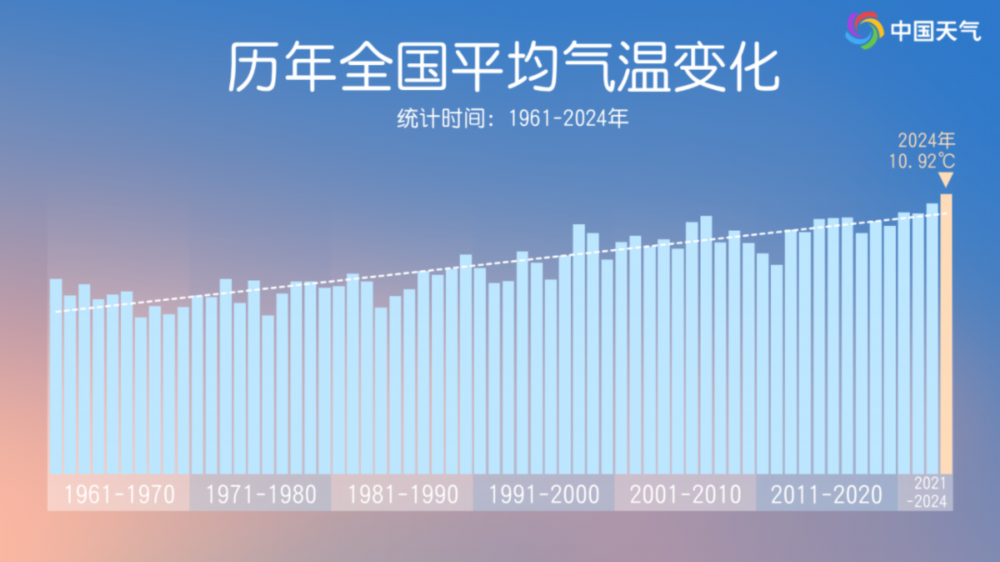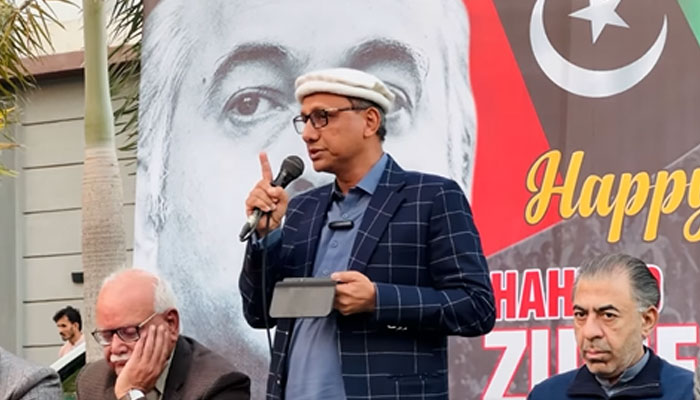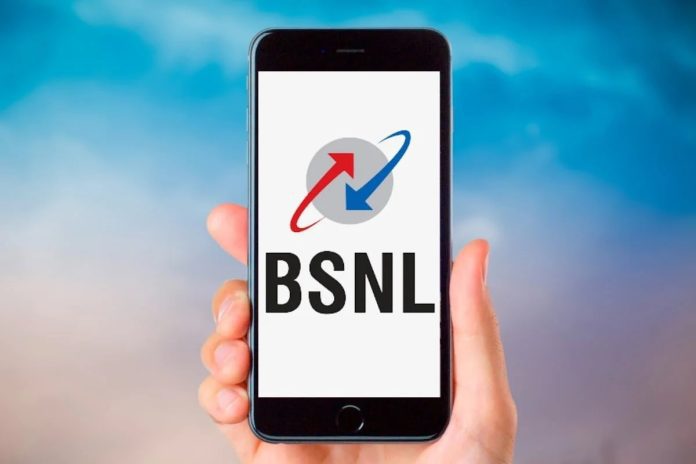astron gs-288
2025-01-09 2025 European Cup astron gs-288
News
 gstar28 login app download
gstar28 login app download
As the results of the 2024 US presidential election began to roll in, revealing a dramatic shift in the nation’s political landscape, I sat with a colleague to unpack what had unfolded. What started as an analytical conversation soon devolved into a blame game. My colleague pointed fingers at non-college-educated voters, Palestinian supporters and Latino working-class communities—everyone but the root of the problem: White liberals. When I called out their blind spots—arguing that the election outcome was not merely a reflection of voting patterns but of deeper failures like the abandonment of the working class, an overemphasis on Trump as a threat to democracy rather than tangible solutions, the ongoing genocide in Gaza and the stark reality that White women had overwhelmingly voted for Donald Trump—their response stunned me. My White colleague, unfazed, looked me dead in the eye and said, “As a born-and-bred American, I feel trapped in a bad marriage. They thought Trump would bring peace to Gaza. Look at what they have done. I am a liberal—always have been—but now I am considering leaving America. At least you have a place to go.” As an immigrant and a woman of colour, the sharp comment wrapped in White privilege hit like a dagger, but it also encapsulated why the Democratic Party’s losses were so devastating—thanks, in large part, to the failures of a key segment of its base: White liberals. Often buoyed by a sense of moral superiority, this group had grossly misjudged the political terrain. They clung to optimism fuelled by grassroots successes and the resurgence of issues like climate change, economic inequality and reproductive rights. Yet, as the votes came in, it became glaringly apparent that this optimism was misplaced. The 2024 election, like those before, served as a brutal reminder: ideology alone doesn’t shape the political landscape. It is moulded by the lived experiences, needs and desires of a broad, diverse electorate—something too many White liberals continue to overlook. The majority of White liberals continue to inhabit a powerful echo chamber where they engage with others who share similar values, opinions and experiences. For them, the world is often neatly divided into progressive versus regressive and virtuous versus ignorant. They see their candidates through the lens of moral righteousness, framing the political struggle as one of “good” versus “evil”. While such moral clarity can be invigorating, it is also perilous. This worldview often neglects the complexities and contradictions that define American society, particularly the challenges faced by working-class Americans, rural populations and voters of colour. In the 2024 election, these oversimplifications contributed to the erosion of support in key battleground states, which had previously been the Democratic strongholds—Michigan, Wisconsin and Pennsylvania. The results mirrored those of 2016 in several alarming ways. While Kamala Harris had campaigned on progressive values, tapping into the anger and frustration stemming from the US Supreme Court’s decision to overturn Roe v. Wade, many voters—especially White women—reverted to familiar allegiances with the Republican Party. In 2016, Hillary Clinton’s candidacy was heralded as a groundbreaking moment for women in politics. Yet, her defeat to Trump was a stark reminder of how fragile progress can be. Despite her credentials and experience, Clinton failed to resonate with significant segments of the electorate. White women, in particular, played a pivotal role in Trump’s victory, voting for him in numbers that surprised many analysts. This phenomenon was often attributed to a mix of socio-economic factors, cultural identity and a refusal to embrace a candidate perceived as a continuation of the establishment. Fast forward to 2024, and a similar pattern emerged. Harris, while advocating for women’s rights and attempting to galvanise the base around shared values, fell short in addressing the complexities of White women’s political behaviour. Many of these voters, disillusioned by the perceived extremism of progressive platforms and the failures of the Democratic establishment, leaned toward Trump. One of the more perplexing aspects of Harris’ campaign rhetoric was her attempt to court suburban Republican women, particularly those disillusioned with Trump’s leadership. In theory, these voters could have been persuaded to support Harris if she had appealed to their desire for stability and civility and their frustration with Trump’s abrasive style. This strategy was epitomised by the inclusion of former Republican Congresswoman Liz Cheney as a potential symbol of crossover appeal. Cheney, who had publicly broken with Trump over his role in the January 6 Capitol riot, was seen as a figure who could bridge the divide between moderate Republicans and Democrats. The hope was that Cheney’s prominence in the anti-Trump movement could sway suburban Republican women into voting for Harris, even if it meant defying their Republican-leaning spouses. In reality, this strategy did not materialise as expected. Despite Harris’s efforts to connect with moderate Republicans, particularly suburban women, the election saw a significant gender gap. While some suburban women defected from Trump, the overall trend among White women remained mainly in the former president’s favour. According to exit polls, a majority of White women—around 53%—voted for Trump, compared to 47% who voted for Harris. This result was surprising given that Harris, as the first woman of colour on a major party ticket, was expected to draw strong support from women, particularly those who had become disillusioned with Trump’s misogynistic rhetoric and behaviour. In retrospect, the attempt to lure suburban Republican women away from Trump by focusing on his personal deficiencies rather than on tangible policy solutions was an overly simplistic approach. The lessons from both the 2016 and 2024 elections are stark. White liberals, in their eagerness, often failed to engage with the realities of the voters they sought to mobilise. Assumptions about shared values, particularly among White women, proved dangerous and oversimplified. This demographic, often viewed through identity politics, is not monolithic; their decisions are influenced by many factors, including race, class and regional identity. The fallout from the Dobbs decision, which overturned Roe v. Wade, created a complex emotional landscape for many women. While reproductive rights were a critical issue; they were not the sole determinant of political allegiance. The overwhelming support for Trump, even in the wake of anti-abortion rulings, suggests that many women are grappling with conflicting loyalties—between their rights and a perceived cultural identity. For many, this creates a sense of betrayal, as the very rights women fought for are increasingly under siege. The challenge for liberals is not merely to mobilise around these rights but to foster an environment where women feel empowered to make decisions based on their unique circumstances and values. This requires a radical shift in framing the conversation and moving beyond a binary narrative of good versus evil. One of Harris’ most significant failures during the 2024 campaign was her failure to adequately address the deep economic struggles facing millions of American working-class families. In many ways, her rhetoric mirrored that of her predecessor, Hillary Clinton, whose infamous characterisation of certain working-class voters as “deplorables” in the 2016 election alienated large swathes of the electorate. By failing to recognise the struggles of these voters, Clinton inadvertently fuelled resentment and disengagement from the political system, particularly in rural and industrial areas where economic dislocation and job insecurity were paramount concerns. Harris, too, missed the opportunity to connect with voters based on economic hardship. Instead of articulating a concrete agenda that could improve the lives of working-class Americans, much of her rhetoric was centred around the spectre of Donald Trump. While this approach successfully consolidated the anti-Trump vote, it did little to address the pressing issues that voters cared most about, such as healthcare, labour rights, affordable childcare and wage stagnation. At a time when workers across America were grappling with job insecurity, rising healthcare costs and a lack of affordable childcare options, Harris had an opportunity to present a bold, progressive vision for strengthening the rights and well-being of American workers. Instead of delivering a message about how her policies could improve the material conditions of ordinary Americans, Harris spent a significant portion of her campaign warning about the existential threat of Trump’s policies. While it was essential to critique Trump’s failure to shift the focus to concrete solutions for working-class families, it was a glaring missed opportunity. The sentiment was echoed by Senator Bernie Sanders, who issued a pointed critique of the Democratic Party, accusing it of abandoning the very working-class people who once formed the backbone of its support. In his statement, Sanders argued that it was no surprise that many working-class Americans had turned away from the party, given its failure to address their needs. He accused the Democratic Party of being complicit in defending the status quo—a status quo that is no longer tenable in a nation where growing inequality and economic hardship are defining the lives of millions. Sanders emphasised the widespread anger among Americans, particularly the working class, who are fed up with a political system that seems more concerned with preserving the interests of the wealthy elite than enacting meaningful change. He also warned that the US is rapidly heading toward an oligarchy, where a handful of the richest individuals and corporations exert disproportionate control over the economy and politics. Meanwhile, most Americans—nearly 60%—live pay cheque to pay cheque, struggling to make ends meet in an economy that increasingly benefits only the wealthiest citizens. The 2024 US presidential election results should serve as a potent reminder that White liberals need to learn to listen, engage and adjust to the complexities of a nation that is far more diverse in its needs and concerns than they often acknowledge. The election revealed the limits of politics driven by identity and cultural issues, particularly at the expense of economic and material concerns. If the Democratic Party and White liberals are to regain relevance and build a genuinely inclusive coalition, they must move beyond the echo chambers of their progressive enclaves and understand the lived realities of those who do not share their privileged positions. In the years ahead, White liberals will have to recognise that the fight for social justice cannot be waged in isolation. If they are to win back the support of the electorate and restore the power of the Democratic Party, they must recognise that the solutions to America are not one-size-fits-all. They need to embrace a politics of empathy, inclusion and practical solutions to the real issues faced by voters across the nation. Souzeina Mushtaq is Assistant Professor of Journalism at the University of Wisconsin-River FallsState, national officials remember Jimmy CarterFury as boss of Keir Starmer's 'viper's nest' union - the GMB - 'bullied and harassed' female staffers and even told one: 'We've got better lawyers than you'
Retailers coax Black Friday shoppers into stores with big discounts and giveaways NEW YORK (AP) — Retailers in the U.S. have used giveaways and bigger-than expected discounts to reward shoppers who ventured out on Black Friday. The day after Thanksgiving still reigns for now as the unofficial kickoff of the holiday shopping season even if it’s lost some luster. Analysts reported seeing the biggest crowds at stores that offered real savings. They say many shoppers are being cautious with their discretionary spending despite the easing of inflation. Stores are even more under the gun to get shoppers in to buy early and in bulk since there are five fewer days between Thanksgiving and Christmas this year. Online sales figures from Thanksgiving Day gave retailers a reason to remain hopeful for a lucrative end to the year. Southwest Airlines says it is ending cabin service earlier to reduce chance of injury Southwest Airlines is ending its cabin service earlier starting next month. Beginning on Dec. 4, a company spokesperson says flight attendants will begin preparing the cabin for landing at an altitude of 18,000 feet instead of 10,000 feet. The company says it's making the changes to reduce the risk of in-flight turbulence injuries. For passengers, that means they will need to return their seats to an upright position or do other pre-landing procedures earlier than before. While turbulence-related fatalities are quite rare, injuries have piled up over the years. Why your favorite catalogs are smaller this holiday season PORTLAND, Maine (AP) — While retailers hope to go big this holiday season, customers may notice that the catalogs arriving in their mailboxes are smaller. Many of the millions of catalogs getting sent to U.S. homes were scaled down to save on postage and paper. Some gift purveyors are sending out postcards. In a sign of the times, the American Catalog Mailers Association rebranded itself in May as the American Commerce Marketing Association. Despite no longer carrying an extended inventory of goods, industry experts say catalogs help retailers cut through the noise and still hold their own in value because of growing digital advertising costs. Canada's Trudeau says he had an 'excellent conversation' with Trump in Florida after tariffs threat WEST PALM BEACH, Fla. (AP) — Canadian Prime Minister Justin Trudeau says he had an “excellent conversation” with Donald Trump in Florida after the president-elect’s threat to impose significant tariffs on two of America’s leading trade partners raised alarms in Ottawa and Mexico City. It's unclear, as Trudeau headed back to Canada on Saturday, whether the conversation had alleviated Trump’s concerns. Trump’s transition team hasn't responded to questions about what the leaders had discussed at their dinner Friday night at Trump's Mar-a-Lago club. The Republican president-elect has threatened to impose tariffs on products from Canada and Mexico if the countries don’t stop what he said was the flow of drugs and migrants across their borders. Trump and Republicans in Congress eye an ambitious 100-day agenda, starting with tax cuts WASHINGTON (AP) — Republicans swept to power on Election Day and now control the House, the Senate and the White House, with plans for an ambitious 100-day agenda come January. Their to-do list includes extending tax breaks, cutting social programs, building the border wall to stop immigration and rolling back President Joe Biden's green energy policies. Atop that list is a plan to renew some $4 trillion in expiring tax cuts that were a signature domestic achievement of Republican Donald Trump’s first term as president. It's an issue that may define his return to the White House. The ruble's in a slump. For the Kremlin, that's a two-edged sword Russia’s ruble is sagging against other currencies, complicating the Kremlin’s efforts to keep consumer inflation under control with one hand even as it overheats the economy with spending on the war against Ukraine with the other. Over time a weaker ruble could mean higher prices for imports from China, Russia's main trade partner these days. President Vladimir Putin says things are under control. One wild card is sanctions against a key Russian bank that have disrupted foreign trade payments. If Russia finds a workaround for that, the ruble could regain some of its recent losses. Iceland votes for a new parliament after political disagreements force an early election REYKJAVIK, Iceland (AP) — Icelanders are electing a new parliament after disagreements over immigration, energy policy and the economy forced Prime Minister Bjarni Benediktsson to pull the plug on his coalition government and call early elections. This will be Iceland’s sixth general election since the 2008 financial crisis devastated the economy of the North Atlantic island nation and ushered in a new era of political instability. Opinion polls suggest the country may be in for another upheaval, with support for the three governing parties plunging. Benediktsson, who was named prime minister in April following the resignation of his predecessor, struggled to hold together the unlikely coalition of his conservative Independence Party with the centrist Progressive Party and the Left-Green Movement. Massachusetts lawmakers push for an effort to ban all tobacco sales over time BOSTON (AP) — A handful of Massachusetts lawmakers are hoping to persuade their colleagues to support a proposal that would make the state the first to adopt a ban meant to eliminate the use of tobacco products over time. Other locations have weighed similar “generational tobacco bans.” The bans phase out the use of tobacco products based not just on a person's age but on birth year. Lawmakers plan to file the proposal next year. If approved, the bill would set a date and ban the sale of tobacco to anyone born after that date forever, eventually banning all sales. Vietnam approves $67 billion high-speed railway project between Hanoi and Ho Chi Minh city HANOI, Vietnam (AP) — Vietnam has approved the construction of a high-speed railway connecting the capital Hanoi in the north with the financial capital of Ho Chi Minh in the south. It is expected to cost $67 billion and will stretch 1,541 kilometers (957 miles). The new train is expected to travel at speeds of up to 350 kph (217 mph), reducing the journey from the current 30 hours to just five hours. The decision was taken by Vietnam’s National Assembly on Saturday. Construction is expected to begin in 2027 and Vietnam hopes that the first trains will start operating by 2035. But the country has been beleaguered by delays to its previous infrastructure projects. Inflation rose to 2.3% in Europe. That won't stop the central bank from cutting interest rates FRANKFURT, Germany (AP) — Inflation in the 20 countries that use the euro currency rose in November — but that likely won’t stop the European Central Bank from cutting interest rates as the prospect of new U.S. tariffs from the incoming Trump administration adds to the gloom over weak growth. The European Union’s harmonized index of consumer prices rose 2.3 percent, up from 2.0% in October, according to EU statistics agency Eurostat. However, worries about growth mean the Dec. 12 ECB meeting is not about whether to cut rates, but by how much. Market buzz says there could be a larger than usual half-point cut in the benchmark rate, currently 3.25%.
Republicans lash out at Democrats' claims that Trump intelligence pick Gabbard is 'compromised'
It’s Christmas time again in Japan, which means children everywhere are anxiously awaiting the arrival of Kris Kringle and his bag of toys for all the good girls and boys. It’s all enough to make anyone suddenly get filled with the Christmas spirit and go out to spread some cheer. However, cheer in general has been in short order in recent years so whenever it presents itself, people aren’t so quick to take it at face value. That’s precisely why on December 18, police in the town of Yuasa in Wakayama Prefecture were called out to investigate a young man dressed as Santa Claus who was spotted handing out treats in front of Yuasa Municipal Elementary School. The rogue Santa was first seen at approximately 4 p.m. on December 17 and reported to police by the town’s board of education. The following day police located the man and questioned him. As a result, they sent out an email announcing that the suspicious Santa was acting purely out of “goodwill” but reminded residents to remain vigilant to ensure public safety. The incident attracted attention on social media and quickly spread around the country. Many comments online applauded taking action against strangers handing food out to children, while others lamented that society has come to a place where we have to drop a dime on Santa. “That’s not goodwill. It’s potentially dangerous and a nuisance to others.” “There are people who pass off illegal drugs as candy.” “In this day and age, even Santa is suspect.” “Even if he is sincere, he should know better these days.” “There have been a lot of strange incidents recently, so people are on guard.” “This is the most depressing news story I’ve heard in a while.” “Did we forget about drug gummies? Cannabis gummies are regulated as narcotics.” “If you want to hand out candy, get permission from the school first.” It’s always interesting how people are quick to assume it would be illegal drugs like weed mixed in with the snacks, as if most drug fiends are sitting on a mountain of the stuff and have no problem giving it away for free rather than keep if for themselves. Even if the intent is simply to poison or intoxicate kids for some sick thrill, there are way easier ways to do it than procuring illicit narcotics in Japan. But the point stands that there could have been anything in that food from the guy’s boogers to antifreeze, so, as sad a reflection on society as it is, it’s hard to argue with putting a stop to this guy’s impromptu generosity. The last comment said it best that anyone who genuinely wants to play Santa should just go through the proper channels first. We’re sure they would be more than happy to set up a Santa event in front of the school with a willing volunteer. Heck, they’d probably even provide the food themselves. Let’s practice safe Santa out there folks. Source: Yomiuri Shimbun Online, My Game News Flash Read more stories from SoraNews24. -- Mysterious Santa puts smiles on childrens’ faces with a generous gift of 3,000 books! -- Japan destroys Santa Claus with science: “If he were real, we’d all be dead from his sonic boom.” -- Japanese idol group asks fans to be respectful towards pre-teen singer for heartwarming reason
There's no denying that 2024 has been a banner year for . The company cemented its position as the gold standard for graphics processing units (GPUs) that underpin , and the future continues to look bright. Since the AI revolution kicked off in early 2023, the stock has gained more than 850%, with 182% gains this year alone. But this doesn't tell the entire story. Over the past six months, even as its business has continued to ramp up, Nvidia's stock has stalled. Concerns about the future adoption of AI, the specter of competition, and a lofty valuation have sent some investors to the sidelines, wondering if the company's best days are behind it. Let's look at what lies ahead for Nvidia and if the stock still represents a compelling opportunity for investors heading into the new year. Catalysts abound There are a number of catalysts that could move Nvidia stock in the early part of 2025, so investors should mark their calendars. CEO Jensen Huang is something of a rock star in the investing community. The popular chief executive tends to generate excitement that has the potential to move Nvidia's stock price whenever he makes public addresses. One such appearance is the opening of the Consumer Electronics Show (CES), as Huang is scheduled to give the keynote address on Jan. 6. Huang has his finger on the pulse of the technology industry and is expected to provide his views on the pace of AI adoption and the state of the technology in general. Perhaps more importantly, it's likely he will also give an update on demand for Nvidia's Blackwell platform. The next-generation processor, which is purpose-built for AI applications, was scheduled to begin shipping earlier this month. Huang has previously described demand for the chips as "insane," so expectations are high, and any positive update will likely give the stock a boost. In fact, analyst Atif Malik put Nvidia on a "positive catalyst watch" ahead of Huang's appearance. The analyst maintains a buy rating and a price target of $175, which suggests potential upside of 25% compared to Tuesday's closing price. Malik believes an update on the sale of Blackwell and the potential for increasing margins could send the stock higher. It's worth taking a moment to review investor concerns regarding Nvidia's margins. The company's gross profit margin hit an all-time high of 78.4% during its fiscal 2025 first quarter (ended April 28). However, in the two quarters that followed, those margins slid to 75.1% and 74.6%. Management chalked those declines up to "inventory provisions" related to its upcoming Blackwell launch and is guiding for a gross profit margin of 73% in the current quarter. In some cases, declining profit margins can be a red flag over the longer term, but a decline over two quarters is too small a sample size for investors to be concerned -- particularly on the heels of a record-breaking performance in Q1 and an upcoming product launch. The most significant potential catalyst on the horizon is Nvidia's fiscal 2025 fourth-quarter financial report, which is scheduled to be released on Feb. 26. Management is guiding for revenue of $37.5 billion, which would represent growth of about 70%, though Nvidia has a long history of issuing conservative guidance. For example, after issuing a forecast for 79% growth in Q3, Nvidia delivered growth of roughly 94%. If Blackwell shipments end up being more robust than expected -- and history suggests it could -- the company could blow past Wall Street's expectations, which could also push Nvidia stock higher. Finally, investor fears that the adoption of AI could stall appear overblown. A study by Big Four accounting firm PwC estimates that AI has the potential to add as much as $15.7 trillion to the global economy by 2030. In fact, the data suggests that as much as 45% of all economic gains during the period could be the result of product enhancements from AI, sparking additional consumer demand. Should investors buy Nvidia before 2025? There's one final reason investors should consider buying Nvidia stock before 2025 -- its valuation -- but that requires some context. Early this year, when excitement regarding AI had reached a crescendo, Nvidia stock was selling for 83 times earnings. Over the course of the past year, however, that multiple has fallen steadily, and the stock is currently selling for 55 times earnings. While that might still seem expensive at first glance, it's worth putting into historical context. Over the past decade, Nvidia has had an average of 59, which shows its current multiple is historically cheap. Furthermore, Nvidia is expected to generate of $4.43 in fiscal 2026, according to Wall Street. That works out to just 32 times next year's expected earnings, which is an appealing valuation for a company with such a sterling track record of growth. Taken together, Huang's upcoming appearance at CES, the blockbuster potential for Nvidia's next-generation Blackwell AI processor, the potential for improving margins, a compelling valuation, and the company's pivotal role in recent AI advances suggest there's potential upside over the near term. That said, investors looking to make a quick buck should exercise care. Any one of the aforementioned catalysts could go the other way, sending the stock , at least temporarily. Here's the thing: If you believe, like I do, that AI has the potential to transform industries and that Nvidia is one of the principal beneficiaries of this trend, then buy Nvidia stock and hang on for the wild ride to come. It doesn't matter if you buy the stock before 2025 -- as long as you buy it.
'We owe him a debt of gratitude': Presidents remember Jimmy Carter after death at 100Nissan and Honda to attempt a merger that would create the world's No. 3 automaker TOKYO (AP) — Japanese automakers Nissan and Honda have announced plans to work toward a merger that would catapult them to a top position in an industry in the midst of tectonic shifts as it transitions away from its reliance on fossil fuels. The two companies said they signed an agreement on integrating their businesses on Monday. Smaller Nissan alliance member Mitsubishi Motors agreed to join the talks. News of a possible merger surfaced earlier this month. Japanese automakers face a strong challenge from their Chinese rivals and Tesla as they make inroads into markets at home and abroad. What a merger between Nissan and Honda means for the automakers and the industry BANGKOK (AP) — Japanese automakers Honda and Nissan will attempt to merge and create the world’s third-largest automaker by sales as the industry undergoes dramatic changes in its transition away from fossil fuels. The two companies said they had signed a memorandum of understanding on Monday and that smaller Nissan alliance member Mitsubishi Motors also had agreed to join the talks on integrating their businesses. Honda will initially lead the new management, retaining the principles and brands of each company. Following is a quick look at what a combined Honda and Nissan would mean for the companies, and for the auto industry. Nordstrom to be acquired by Nordstrom family and a Mexican retail group in $6.25 billion deal Century-old department store Nordstrom has agreed to be acquired and taken private by Nordstrom family members and a Mexican retail group in a $6.25 billion deal. Nordstrom shareholders will receive $24.25 in cash for each share of Nordstrom common stock, representing a 42% premium on the company’s stock as of March 18. Nordstrom’s board of directors unanimously approved the the proposed transaction, while Erik and Pete Nordstrom — part of the Nordstrom family taking over the company — recused themselves from voting. Following the close of the transaction, the Nordstrom Family will have a majority ownership stake in the company. An analyst looks ahead to how the US economy might fare under Trump WASHINGTON (AP) — President-elect Donald Trump won a return to the White House in part by promising big changes in economic policy — more tax cuts, huge tariffs on imports, mass deportations of immigrants working in the United States illegally. In some ways, his victory marked a repudiation of President Joe Biden’s economic stewardship and a protest against inflation. It came despite low unemployment and steady growth under the Biden administration. What lies ahead for the economy under Trump? Paul Ashworth of Capital Economics spoke recently to The Associated Press. The interview has been edited for length and clarity. American consumers feeling less confident in December, Conference Board says American consumers are feeling less confident in December, a business research group says. The Conference Board said Monday that its consumer confidence index fell back in December to 104.7 from 112.8 in November. Consumers had been feeling increasingly confident in recent months. The consumer confidence index measures both Americans’ assessment of current economic conditions and their outlook for the next six months. The measure of Americans’ short-term expectations for income, business and the job market tumbled more than a dozen points to 81.1. The Conference Board says a reading under 80 can signal a potential recession in the near future. Stock market today: Wall Street rises at the start of a holiday-shortened week Stocks closed higher on Wall Street at the start of a holiday-shortened week. The S&P 500 rose 0.7% Monday. Several big technology companies helped support the gains, including chip companies Nvidia and Broadcom. The Dow Jones Industrial Average added 0.2%, and the Nasdaq composite rose 1%. Honda's U.S.-listed shares rose sharply after the company said it was in talks about a combination with Nissan in a deal that could also include Mitsubishi Motors. Eli Lilly rose after announcing that regulators approved Zepbound as the first prescription medicine for adults with sleep apnea. Treasury yields rose in the bond market. The internet is rife with fake reviews. Will AI make it worse? Researchers and watchdog groups say the emergence of generative artificial intelligence tools that allow people to efficiently produce detailed and novel online reviews has put merchants, service providers and consumers in uncharted territory. Phony reviews have long plagued many popular consumer websites, such as Amazon and Yelp. But AI-infused text generation tools enable fraudsters to produce reviews faster and in greater volume, according to tech industry experts. The deceptive practice is illegal in the U.S. and becomes a bigger problem for consumers during the holiday shopping season, when many people rely on reviews to buy gifts. A tech company and watchdog group that uses software to detect fake reviews says AI-generated reviews have multiplied. Romanian lawmakers narrowly approve new pro-European coalition during period of political turmoil BUCHAREST, Romania (AP) — Romanian lawmakers have voted narrowly in favor of a new pro-European coalition government led by incumbent Prime Minister Marcel Ciolacu. The move on Monday could usher in an end to a protracted political crisis in the European Union country following the annulment of a presidential election. Parliament approved the new administration in a 240-143 vote in the 466-seat legislature. The new coalition is made up of the leftist Social Democratic Party, the center-right National Liberal Party, the small ethnic Hungarian UDMR party and national minorities. President Klaus Iohannis swore in the new government on Monday night. Government regulators close investigation into Ford Focus recalls Government safety regulators are closing an investigation into two previous recalls of the Ford Focus after determining that Ford Motor Co. has satisfied its concerns. Ford recalled around 1.5 million Ford Focus sedans from the 2012-2018 model years in 2018 because they could lose power. The issue was a malfunctioning canister purge valve and software that didn’t adequately detect when it was stuck open. Ford fixed the software in two separate recalls, but after cars continued to stall, the government opened an inquiry last year. Earlier this fall, Ford offered to replace the canister purge valve on all of the vehicles, satisfying regulators' concerns. AI will eavesdrop on world's wildest places to track and help protect endangered wildlife PUERTO JIMÉNEZ, Costa Rica (AP) — A biologist hid 350 audio monitors across Costa Rica’s tropical rainforests to spy on endangered spider monkeys in order to help protect them. But she had to go back to collect the data and feed those sounds into artificial intelligence systems that can recognize monkey calls. Now tech giant Microsoft's philanthropic arm is hoping to supercharge AI-assisted wildlife research with new solar-powered devices that can capture sounds, images and other wilderness data for a year or more without human intervention. Researchers say more AI wildlife surveillance is urgently needed to monitor the health of species at risk of extinction.
WASHINGTON -- A tax break for millionaires, and almost everyone else. An end to the COVID-19-era government subsidies that some Americans have used to purchase health insurance. Limits to food stamps, including for women and children, and other safety net programs. Rollbacks to Biden-era green energy programs. Mass deportations. Government job cuts to "drain the swamp." Having won the election and sweeping to power, Republicans are planning an ambitious 100-day agenda with President-elect Donald Trump in the White House and GOP lawmakers in a congressional majority to accomplish their policy goals. Atop the list is the plan to renew some $4 trillion in expiring GOP tax cuts, a signature domestic achievement of Trump's first term and an issue that may define his return to the White House. "What we're focused on right now is being ready, Day 1," said House Majority Leader Steve Scalise, R-La., after meeting recently with GOP colleagues to map out the road ahead. SEE ALSO | Trump, Trudeau meet at Mar-a-Lago amid tariff threats The policies emerging will revive long-running debates about America's priorities, its gaping income inequities and the proper size and scope of its government, especially in the face of mounting federal deficits now approaching $2 trillion a year. The discussions will test whether Trump and his Republican allies can achieve the kinds of real-world outcomes wanted, needed or supported when voters gave the party control of Congress and the White House. "The past is really prologue here," said Lindsay Owens, executive director of the Groundwork Collaborative, recalling the 2017 tax debate. Trump's first term became defined by those tax cuts, which were approved by Republicans in Congress and signed into law only after their initial campaign promise to "repeal and replace" Democratic President Barack Obama's health care law sputtered, failing with the famous thumbs-down vote by then-Sen. John McCain, R-Ariz. The GOP majority in Congress quickly pivoted to tax cuts, assembling and approving the multitrillion-dollar package by year's end. In the time since Trump signed those cuts into law, the big benefits have accrued to higher-income households. The top 1 percent - those making nearly $1 million and above - received about a $60,000 income tax cut, while those with lower incomes got as little as a few hundred dollars, according to the Tax Policy Center and other groups. Some people ended up paying about the same. "The big economic story in the U.S. is soaring income inequality," said Owens. "And that is actually, interestingly, a tax story." In preparation for Trump's return, Republicans in Congress have been meeting privately for months and with the president-elect to go over proposals to extend and enhance those tax breaks, some of which would otherwise expire in 2025. That means keeping in place various tax brackets and a standardized deduction for individual earners, along with the existing rates for so-called pass-through entities such as law firms, doctors' offices or businesses that take their earnings as individual income. Typically, the price tag for the tax cuts would be prohibitive. The Congressional Budget Office estimates that keeping the expiring provisions in place would add some $4 trillion to deficits over a decade. Adding to that, Trump wants to include his own priorities in the tax package, including lowering the corporate rate, now at 21% from the 2017 law, to 15%, and doing away with individual taxes on tips and overtime pay. But Avik Roy, president of the Foundation for Research on Equal Opportunity, said blaming the tax cuts for the nation's income inequality is "just nonsense" because tax filers up and down the income ladder benefited. He instead points to other factors, including the Federal Reserve's historically low interest rates that enable borrowing, including for the wealthy, on the cheap. "Americans don't care if Elon Musk is rich," Roy said. "What they care about is, what are you doing to make their lives better?" Typically, lawmakers want the cost of a policy change to be offset by budget revenue or reductions elsewhere. But in this case, there's almost no agreed-upon revenue raisers or spending cuts in the annual $6 trillion budget that could cover such a whopping price tag. Instead, some Republicans have argued that the tax breaks will pay for themselves, with the trickle-down revenue from potential economic growth. Trump's tariffs floated this past week could provide another source of offsetting revenue. Some Republicans argue there's precedent for simply extending the tax cuts without offsetting the costs because they are not new changes but existing federal policy. "If you're just extending current law, we're not raising taxes or lowering taxes," said Sen. Mike Crapo, R-Idaho, the incoming chairman of the Senate Finance Committee, on Fox News. He said the criticism that tax cuts would add to the deficit is "ridiculous." There is a difference between taxes and spending, he said, "and we just have to get that message out to America." At the same time, the new Congress will also be considering spending reductions, particularly to food stamps and health care programs, goals long sought by conservatives as part of the annual appropriations process. One cut is almost certain to fall on the COVID-19-era subsidy that helps defray the cost of health insurance for people who buy their own policies via the Affordable Care Act exchange. The extra health care subsidies were extended through 2025 in Democratic President Joe Biden's Inflation Reduction Act, which also includes various green energy tax breaks that Republicans want to roll back. The House Democratic leader, Rep. Hakeem Jeffries of New York, scoffed at the Republican claim that they've won "some big, massive mandate" - when in fact, the House Democrats and Republicans essentially fought to a draw in the November election, with the GOP eking out a narrow majority. "This notion about some mandate to make massive, far-right extreme policy changes, it doesn't exist - it doesn't exist," Jeffries said. Republicans are planning to use a budgetary process, called reconciliation, that allows majority passage in Congress, essentially along party lines, without the threat of a filibuster in the Senate that can stall out a bill's advance unless 60 of the 100 senators agree. It's the same process Democrats have used when they had the power in Washington to approve the Inflation Reduction Act and Obama's health care law over GOP objections. Republicans have been here before with Trump and control of Congress, which is no guarantee they will be able to accomplish their goals, particularly in the face of resistance from Democrats. Still, House Speaker Mike Johnson, R-La., who has been working closely with Trump on the agenda, has promised a "breakneck" pace in the first 100 days "because we have a lot to fix." ___ The story has been corrected to reflect that Lindsay Owens of the Groundwork Collaborative spoke of 'income inequality,' not 'income equality.' The video in the player above is from a previous report.Column: Leave it to the Chicago Bears to botch a coach firing even your Aunt Martha could see coming
In the ongoing Sambhal case, a troubling development has emerged: threats are being made against Vishnu Shankar Jain, a lawyer representing the Hindu side of the mosque-temple dispute. A contentious issue has surfaced in Sambhal regarding whether the land of the Jama Masjid was once a Hindu temple. In today's episode of DNA, Zee News has presented the irrefutable evidence suggesting that the Jama Masjid was constructed over an ancient Hindu temple, as evidenced by the findings from a recent survey. When Zee News reporters hit the ground to investigate, startling revelations came to light that will force many people, who claim the area to be only a mosque, to rethink their stance. Threats to Legal Advocate Vishnu Shankar Jain In the ongoing Sambhal case, a troubling development has emerged: threats are being made against Vishnu Shankar Jain, a lawyer representing the Hindu side of the mosque-temple dispute. His role in the case has made him a target, and disturbing messages indicate a serious threat to his life. This raises questions about the motivations behind such threats. Could they be aimed at derailing the case, or is there a more sinister agenda at play? Vishnu Shankar Jain: Targeted for Exposing the Truth? Vishnu Shankar Jain has been at the forefront of legal battles related to Hindu religious sites, including the Ram Mandir-Babri case, Kashi Vishwanath-Gyanvapi case, and others. Recently, in Sambhal, Jain has been accused by certain quarters of inciting violence during the mosque survey, despite evidence to the contrary. CCTV footage clearly shows the attackers, not Jain, responsible for the violence, yet Jain has been targeted on social media, with claims that he incited the riots. In an exclusive interview, Jain refuted these accusations and suggested that the threats against him are aimed at silencing the truth and derailing the case. His response raises some critical questions: Is there a truth about the Jama Masjid in Sambhal that some groups want to suppress? Why is Vishnu Shankar Jain being targeted? The Ground Reality of the Sambhal Riots The recent riots in Sambhal have seen the active involvement of violent mobs. CCTV footage from November 24 shows masked individuals throwing stones in narrow lanes, an act fueled by a provocative figure who is seen encouraging the crowd. This individual, dressed in white with a black shawl and cap, repeatedly gestures for the mob to advance and escalate their actions. This footage has led to the identification of key figures responsible for inciting violence. Following the riots, the police came under scrutiny for their actions, with accusations that they fired indiscriminately on a Muslim crowd. However, further investigation, including more video evidence, suggests that the police were simply maintaining order and did not act as recklessly as some critics have claimed. New Claims of Ancient Temple Artifacts in Sambhal In addition to the mosque-temple dispute, new claims have surfaced about ancient Hindu temple artifacts found in Sambhal. Archaeologists claim that remnants of the Hindu temple of Lord Vishnu, including idols and relics from the Gupta period, have been discovered. These claims support the theory that the Jama Masjid in Sambhal was built over an ancient temple. Atul Mishra, an archaeologist from Sambhal, and his family have collected these artifacts over the years, including a statue of Lord Vishnu and a relic resembling the Vishnu chakra. Mishra argues that these findings, combined with historical records, suggest that the Jama Masjid site was once home to the Harirh Temple, which was demolished to construct the mosque. ASI’s Allegations Against Jama Masjid Committee Another intriguing angle to the dispute involves the Archaeological Survey of India (ASI). ASI has filed an affidavit in the Sambhal court accusing the Jama Masjid management of obstructing archaeological inspections. Despite the Jama Masjid being a protected monument since 1920, ASI officials claim that they have been denied access to carry out necessary preservation work. In recent inspections, ASI found alterations to the mosque structure that they believe were made to hide its original temple-like foundation. This raises the question: Why is the Jama Masjid committee interfering with ASI’s work? Are they trying to cover up evidence that could reveal the truth about the mosque’s origins? Stay informed on all the latest news , real-time breaking news updates, and follow all the important headlines in india news and world News on Zee News.There was an odd atmosphere on Capital Hill . or signup to continue reading A taut electric vibe tussled with a summery last-day-of-school looseness. Haggard correspondents intoned philosophic, wearily resigned to their designation as villains in the febrile digital colosseum of political combat. With an unholy crush in the Senate - 31 bills passed on one day and 45 for the week - nervous but footloose lower house MPs killed time. Ministers floated between offices, affecting calm in that way trial lawyers do after closing arguments when everything hangs on a curmudgeonly judge or an inscrutable jury. The Speaker, Milton Dick, expressed his thanks to the sprawling complex's thousands of staff for keeping operational what Anthony Albanese described as "the most visited building in Australia". And it certainly seemed "most-visited" at Aussies on Thursday morning - the roiling social hub where over three decades, Dom Calabria and his father Tony have furnished coffee and meals to stressed press gallery journos, MPs, PMs and frontbenchers, and an infinity of lobbyists and public officials. In their ritual post-question time speeches before the summer break - a bilateral nod to civility dubbed "the hypocrisies" by one scribe - Albanese and Peter Dutton praised old Tony's 28-year stint at Aussies. "Tony is the man who did so much to enhance the seat of democracy here," Albanese remarked warmly to his fellow "Italo-Australian" looking up to the public gallery where three generations of Calabrias watched on. Dutton lauded the ailing 84-year-old's migrant story having emigrated at just 14. "He has worked every day since then, he has educated his children, he has provided a role model and has given that love to his family that has created a remarkable legacy," Dutton said. In other comments, Albanese revealed that he and Dutton did not hate each other after all. He noted that while he had visited Morrison's office only once as opposition leader (a startling factoid since the global pandemic occasioned a bipartisanship likened to wartime), Dutton had been into Albanese's prime ministerial suite, well, "more often than I'd like". Cue laughter. Yet coursing impatiently under all this ersatz chumminess, was the existential fight to come. Each knows that within months, one will be up, the other, finished. Since the Second World War, it has occupied the Treasury benches for just 29 years. Nonetheless, Labor goes into next year's election comforted by electoral history and shielded by an unofficial "Swiss G]guard" of community independents. But that historical precedent - every first-term federal government since 1932 has secured a second term - may amount to nothing in this disintermediated age of antisocial media and permanent grievance. For the 93 years since the rookie Scullin Labor government crashed along with everything else in the Great Depression, incumbency has been a winged keel. Australian voters have tended to pick and stick, at least once. Now though, around the democratic world in 2024, the vogue is to "pick then kick". But what about that Swiss guard of independents? Albanese's worst-case scenario is that one or all of the first-term teals lose. Another risk is that some back a Dutton executive. Currently Labor has 78 seats to the Coalition's 58. Dutton needs a net gain of 18 seats to govern in his own right. A huge task. Polls suggest the most likely outcome is a minority parliament. Labor could lose half a dozen seats to Dutton's Liberals and still be close enough to credibly seek crossbench commitments for supply and confidence. But what would the teal independents do - who would they prefer to form government? The lesson from the minority Gillard period is that indies who hold conservative seats but back progressive governments face extinction themselves. In this light,, it may be instructive to consult the AEC's "two-party preferred" exercise, in which it allocated all 151 "Reps" seats to either of the two major parties (irrespective of whether the seat actually fell to a third party). Unsurprisingly, it shows that preferences for either of the two majors (ahead of the other) favoured the Liberals by the following percentages in teal seats: Curtin (5.4), Goldstein (4.8), Kooyong (4.1 ), Mackellar (8.6), Warringah (1.4), Wentworth (5.9). These pro-Liberal margins may even expand in a 2025 election devoid of the unpopular Morrison. Yet this cuts both ways. In formerly safe Labor Fowler, Dai Le (assuming she survives) would have to ignore a strong Labor proclivity in her seat to back a Dutton-led minority government. Another outlier is Alexander Downer's erstwhile stronghold of Mayo, held by the centre-right indie Rebekah Sharkie. Her Adelaide Hills seat actually favoured Labor by 1.6 per cent in 2022. In all three of the Queensland seats filched by the Greens in 2022, voters preferred Labor - even the two secured from the LNP, Brisbane and Ryan. Nationally, the polls show a busy and productive Labor trailing Dutton's detail-light rhetorical assault over cost of living and immigration. The hardline Queenslander is a more effective political communicator than even his own colleagues thought when they overlooked him in 2018. In 2025, Labor remains the narrow favourite. But its hardheads recognise that no opposition leader is unelectable, no historical precedent immutable, and no seat lead impregnable. Mark Kenny is The Canberra Times' political analyst and a professor at the ANU's Australian Studies Institute. He hosts the Democracy Sausage podcast. He writes a column every Sunday. Mark Kenny is The Canberra Times' political analyst and a professor at the ANU's Australian Studies Institute. He hosts the Democracy Sausage podcast. He writes a column every Sunday. Advertisement Sign up for our newsletter to stay up to date. We care about the protection of your data. Read our . AdvertisementWayne Rooney encourages I’m A Celeb viewers to vote for Coleen to do a trial
Harris Dickinson was nervous to approach . This would not necessarily be notable under normal circumstances, but the English actor had already been cast to star opposite her in as the intern who initiates an affair with Kidman’s buttoned-up CEO. They’d had a zoom with the who was excited by their playful banter and sure that Dickinson would hold his own. And yet when he found himself at the same event as Kidman, shyness took over. He admitted as much to who took things into her own hands and introduced them. “She helped me break the ice a bit,” Dickinson said in a recent interview with The Associated Press. On set would be an entirely different story. Dickinson might not be nearly as “puckishly audacious” as his character Samuel but in the making of “Babygirl,” he, Kidman and Reijn had no choice but to dive fearlessly into this exploration of sexual power dynamics, going to intimate, awkward, exhilarating and meme-able places. It’s made the film, in theaters Christmas Day, one of the year’s must-sees. “There was an unspoken thing that we adhered to,” Dickinson said. “We weren’t getting to know each other’s personal lives. When we were working and we were the characters, we didn’t veer away from the material. I never tried to attach all of the history of Nicole Kidman. Otherwise it probably would have been a bit of a mess.” His is a performance that reconfirms what many in the film world have suspected since his debut seven years ago as a Brooklyn tough questioning his sexuality in Eliza Hittman’s : Dickinson is one of the most exciting young talents around. Dickinson, 28, grew up in Leytonstone, in East London — the same neck of the woods as Cinema was in his life, whether it was at the local multiplex or venturing into town to see the more social realist films of and “Working class cinema interested me,” he said. “People around me that represented my world.” Appropriately, his entry into making art started behind the camera, with a comedy web series he made as a kid, which he now describes as “really bad spoofs” of films and shows of the time. But things started to really click when he began acting in the local theater. “I remember feeling invigorated by it and accepted,” he said. “I felt myself for the first time and felt able to express myself in a way where I didn’t feel vulnerable and I felt alive and ignited by something.” At around 17, someone suggested that he should give acting a try professionally. He hadn’t even fully understood that it was a career possibility, but he started auditioning. At 20, he was cast in “Beach Rats” and, he said, just “kept going.” Since then, he’s gotten a wide range of opportunities in films both big, including and small. He’s captivated as a male model in Ruben Östlund’s Cannes-winning an estranged father to a 12-year-old in Charlotte Regan’s “Scrapper,” an actor bringing an ex-boyfriend to life in Joanna Hogg’s the charismatic, tragic wrestler David Von Erich in Sean Durkin’s and a soldier in But “Babygirl” would present new challenges and opportunities with a character who’s almost impossible to define. “He was confusing in a really interesting way. There wasn’t loads of specificity to it, which I enjoyed because it was a bit of a challenge to sort of pinpoint exactly what it was that drove him and made him tick,” Dickinson said. “There was a directness that unlocked a lot for me, like a fearlessness with the way he spoke, or a social unawareness in a way — like not fully realizing what he’s saying is affecting someone in a certain way. But I didn’t make too many rules for him.” Part of the allure of the film is the ever-shifting power dynamics between the two characters, which could change over the course of a scene. As Reijn said, “It’s a cautionary tale about what happens when you suppress your own desires.” She was especially in awe of Dickinson’s ability to make everything feel improvised and the fact that he could look like a 12-year-old boy in one shot and a confident 45-year-old man in the next. Since its premiere at the earlier this year, the film has led to some surprisingly direct conversations with audiences spanning generations. But that, Dickinson understood, was what Reijn wanted. “She really wanted to show the ugliness and the awkwardness of these things, of these relationships and sex,” he said. “That sort of fumbly version and the performative version of it is way more interesting, to me at least, than the kind of fantasized, romanticized, sexy thing that we’ve seen a lot.” Dickinson recently stepped behind the camera again, directing his first feature film under the banner of his newly formed production company. Set against the backdrop of homelessness in London, “Dream Space” is about a drifter trying to assimilate and understand his cyclical behavior. The film, which wrapped earlier this year, has given him a heightened appreciation for just how many people are indispensable in the making of a film. He’s also started to understand that “acting is just being able to relax.” “When you’re relaxed, you can do stuff that is truthful,” he said. “That only happens if you’ve got good people around you: The director that creates the good environment. The intimacy coordinator facilitating a safe space. A coworker in Nicole encouraging that kind of bravery and performance with what she’s doing.” Dickinson did eventually get to the point where he managed to ask Kidman questions about working with Stanley Kubrick and Lars Von Trier. But he also kept one shattering possibility between himself and his director. “There is a world in which Samuel doesn’t even exist. He’s just a sort of a device or a figment for her own story. And I like that because it kind of means you can take the character into a very unrealistic realm at times and be almost like a deity in the story,” Dickinson said. “We didn’t talk about it with Nicole.” Lindsey Bahr, The Associated Press
MIAMI GARDENS, Fla. (AP) — The Miami Dolphins were ready to deal veteran defensive tackle Calais Campbell to the Baltimore Ravens ahead of the Nov. 5 trade deadline until Mike McDaniel stepped in. “I may or may not have thrown an adult temper tantrum,” Miami’s coach said, confirming the news first reported by NFL Network Sunday morning. The Dolphins were 2-6 and had lost three straight at that point. They’d played four uninspired games without their starting quarterback, going 1-3 after Tua Tagovailoa on Sept. 17 with a concussion. Campbell would have had a chance to rejoin the contending Ravens, and Miami would have received a 2026 fifth-round pick in return, NFL Network reported. McDaniel argued that Campbell was too valuable to lose. “I was happy that they brought me into the conversations,” Campbell said after Miami’s . “They didn’t have to say anything to me at all. We had a really good conversation about what we think about this team, where we are. We felt like we had a good shot to get back into the fight.” Added McDaniel: “I think it wasn’t like it was (GM) Chris (Grier) versus me. ... That’s the tricky thing about Chris’ job is he has to look long-term and short-term at the same time, what’s the best for the organization.” Campbell, a 17-year veteran, signed with the Dolphins after playing for Atlanta last season. Players and coaches have praised the 38-year-old’s contributions on the field and in the locker room. “There’s no one’s game I’ve come to respect more than Calais up front on the D-line,” defensive tackle Zach Sieler said, “being with him this year and just the energy, the attitude and the mindset he brings every week. It can’t be matched, and that’s the reason why he is who he is today and doing what he’s doing at 17 years.” Campbell leads the team with four sacks. With back-to-back sacks in Weeks 10 and 11, he became the eighth player 38 or older to record sacks in consecutive games since the 1970 merger. He also has nine tackles for loss, giving him at least five tackles for loss in 15 of his 17 seasons. He played for Baltimore from 2020-2022, totaling 11 sacks and 113 tackles. “I think he means a great deal to not only the defensive line room, but the entire defense as well as the entire team,” McDaniel said earlier this week. “It’s rare for a guy to get here when he did, and then be voted, with such conviction, captain. I think the way that he operates to be a pro, I think has had a substantial impact on a lot of players that hadn’t been fortunate enough to be around someone with sustained success like he’s had.” The Dolphins have won three straight games since the deadline. Miami’s defense held the Patriots scoreless until the fourth quarter on Sunday. Campbell broke down the team’s pregame huddle as he has done before most games this season. He was also seen coaching up rookie linebacker Chop Robinson, who is always seeking pointers from the six-time Pro Bowler. “My job is to speak on behalf of what’s the best thing for the 2024 Dolphins,” McDaniel said. “I’m just fortunate to work in an organization where myself and the GM can be transparent and work together. “And he didn’t want to see any more adult temper tantrums.” ___ AP NFL:Published 21:42 IST, November 30th 2024 Congress's 'Delhi Nyay Yatra', which is slated to cover 70 assembly constituencies, targets Arvind Kejriwal with ‘Sheesh Mahal’ tableau. New Delhi: The Congress party, on Saturday, carried out the ‘Delhi Nyay Yatra’ with a tableau featuring a ‘Sheesh Mahal (Referred to Delhi CM residence), a gold-plated toilet seat and liquor bottle, alleging unprecedented corruption by former Chief Minister Arvind Kejriwal. As the Congress launched an attack on the ruling AAP government, the ‘Sheesh Mahal’ tableau drew attention across the national capital. While unveiling the tableau in Delhi Hari Nagar, Delhi Congress President Devender Yadav that it symbolises unprecedented corruption by Kejriwal. Yadav said, “Kejriwal, who hailed from a humble background, lived in a small flat, drove a Wagon-R, and with a perpetual cough for company, and who had said that he would not accept any official bungalow, car or security, built a Rs 175 crore “Sheesh Mahal” illegally for himself, with a gold-plated commode, and travelled in luxury vehicles with security to flaunt his power, but did nothing for the people or for the development of the city, which he allowed to deteriorate with air and water pollution causing serious health hazards to the people.” He said that Kejriwal, who also spent lakhs to cure his cough at a resort in Bangalore, neglected Delhi and its residents to drive them into total misery, yet he was swearing by the name of “Aam Aadmi”. Addressing a gathering in Hari Nagar, Devender Yadav said that the float was to expose the corruption and misuse of power by Arvind Kejriwal, who betrayed the people with false promises. He said, “In the name of freebies, Kejriwal served people with dirty water, inflated power bills and an obsolete public transport system. The people of Delhi elected Kejriwal thrice to power, expecting a clean and transparent government by an honest man, but what they got in return was corruption, destruction of the city and a most corrupt chief minister, who became inaccessible to people after getting power.” Taking a veiled dig at Kejriwal calling him ‘Kattar Imandar’, the Delhi Congress president alleged that the former CM destroyed youths of the city by opening liquor vends all over, including non-confirming areas like unauthorised colonies and rural areas, in a liquor scam which eventually landed him in jail. Delhi CM's Residence Was Reportedly Renovated at Around Rs 45 Crore Pertinently, former CM Arvind Kejriwal had promised before his first Delhi assembly elections that he would live an austere life as a chief minister. However, later, it came to light that he spent crores on the renovation of his official residence in Delhi’s Civil Lines. It was claimed that Kejriwal spent a whopping Rs 45 crore on renovation of his official home at 6, Flagstaff Road, Civil Lines in Delhi. The huge expenditure triggered a political row, with the opposition parties demanding his resignation. The Bharatiya Janata Party (BJP) released documents that claimed Rs 44.78 crore were spent on "addition/alteration" at the chief minister’s government residence between September 2020 and June 2022. This included Rs 11.30 crore for interior decoration, Rs 6.02 crore on flooring, and Rs 1 crore on curtains along with crores on appliances and other fixtures. Get Current Updates on India News , Entertainment News along with Latest News and Top Headlines from India and around the world. Updated 21:42 IST, November 30th 2024
State, national officials remember Jimmy Carter
Chicago Bears tackle confirmed out for the rest of the season
The green energy revolution is transforming even unlikely states despite political divisions, Bloomberg Opinion columnist Mark Gongloff writes. Click to share on Facebook (Opens in new window) Click to share on X (Opens in new window) Most Popular Chinese student’s drone got stuck in tree near Newport News Shipbuilding, leading to Espionage Act prosecution Chinese student’s drone got stuck in tree near Newport News Shipbuilding, leading to Espionage Act prosecution Former U.S. President Jimmy Carter dies at 100 Former U.S. President Jimmy Carter dies at 100 Candidates who ran against Sen. Christie New Craig say they tried to investigate residency concerns Candidates who ran against Sen. Christie New Craig say they tried to investigate residency concerns Longtime Phoebus Auction Gallery to close after New Year’s Day event Longtime Phoebus Auction Gallery to close after New Year’s Day event Column: Visiting America’s battlefields? Show some respect Column: Visiting America’s battlefields? Show some respect James City County officer, 17-year-old injured in Christmas Eve crash James City County officer, 17-year-old injured in Christmas Eve crash Norfolk State coach Michael Vick gains commitment from former UTSA defensive lineman Norfolk State coach Michael Vick gains commitment from former UTSA defensive lineman Journey of self: Williamsburg-area massage therapist helps others heal Journey of self: Williamsburg-area massage therapist helps others heal Column: Democrats take aim at Virginia’s marriage amendment Column: Democrats take aim at Virginia’s marriage amendment Juvenile humpback whale washes ashore on Outer Banks Juvenile humpback whale washes ashore on Outer Banks Trending Nationally Body found in wheel well of plane from Chicago to Maui How Diddy and Luigi Mangione spent Christmas in Brooklyn jail Massive invasive python is freed into the Palm Beach County wilderness. Here’s why ‘Baby Driver’ actor Hudson Meek dead at 16 Pregnant woman stabbed multiple times by pizza deliverer disgruntled about tip, sheriff saysAfter the Washington Commanders (7-5) took their third consecutive loss in a disappointing showing against the Dallas Cowboys, one person who must answer some tough questions is OC Kliff Kingsbury. The Commanders' offense has sputtered in recent weeks, and it's far from the first time that's happened in his career. Last week, Kingsbury was addressed about the trend, and his reply didn't exactly scream accountability. The Commanders responded by scoring one touchdown until the game's final few minutes, only beginning to resemble their early season form when they were down by multiple scores and the Cowboys were in their prevent defense. Through the first half, the Commanders had amassed 113 total yards of offense. Through the first three quarters, they were up to 189. Against a reeling Dallas team that they were favored against by more than 10 points, that's not great. Washington's struggles offensively allowed the underdogs to stay in the game, and by the time the Commanders picked it up, it was too late. The late-game heroics from Daniels will make the final box score look more pleasing, but make no mistake: Washington never should have been in that position to begin with. Ultimately, it falls on Kingsbury. After his wishy-washy response last week to valid concerns about the continuation of a trend that's defined his entire coaching career, this needs to be a wakeup call.
 gstar28 casino login register
Princess Diana's brother Charles Spencer visits his sister's grave to share a 'quiet moment' during...Kroger stock hits 52-week high at $60.35 amid robust growthSir Keir Starmer must resist the incessant siren calls of Remainers in his party
gstar28 casino login register
Princess Diana's brother Charles Spencer visits his sister's grave to share a 'quiet moment' during...Kroger stock hits 52-week high at $60.35 amid robust growthSir Keir Starmer must resist the incessant siren calls of Remainers in his party





 gstar28 login app download
gstar28 login app download





 gstar28 login philippines
gstar28 login philippines


























 gstar28
gstar28


